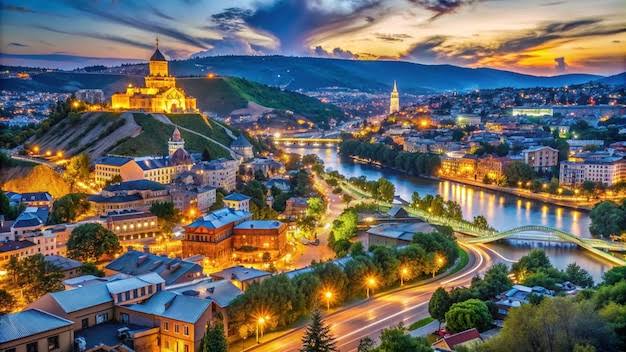In focus: Reaching the EU's energy efficiency target
Achieving our energy and climate goals requires a significant reduction in overall energy consumption. Energy efficiency – which means using less energy to perform the same tasks – is an essential driver of the clean energy transition. Recognising its importance, the EU has agreed to reduce our final energy consumption by 11.7% by 2030, when compared to 2020 levels.
In May 2025, the Commission released its assessment of EU countries’ National Energy and Climate Plans (NECPs). These are national roadmaps showing how EU countries intend to reach their energy and climate targets. In its assessment, the Commission found that many countries have raised their energy efficiency ambitions. However, there is still a gap to reach the 2030 target. Addressing it requires further action.
Energy efficient solutions find their application in commercial and residential buildings, in transport and in industry. They typically range from turning to high-performance materials, for example to insulate spaces, as well as energy-smart appliances and technologies to process optimisation, integrated infrastructure development that caters for energy needs, etc.
Energy efficiency is beneficial in 3 essential dimensions of our lives: it reduces emissions, supports Europe’s energy security by diminishing our reliance on imported fossil fuels, and results in lower energy bills for consumers and companies. A triple win!
In fact, without energy efficiency measures, over the last 20 years, we would need as much as 27% more energy to cover our needs! That is equal to the total annual energy consumption of France, the Netherlands, Austria, and Finland combined.
The EU policy focus on energy efficiency spans over almost 2 decades. In fact, the Commission and EU countries agreed already in 2007 to increase energy efficiency and set a first target to a 20% improvement by 2020. Since then, the ambition has increased – not only in Europe, but around the globe. In addition to the EU’s 2030 target, we also committed to the Global Pledge on Renewables and Energy Efficiency, launched at the World Climate Action Summit of COP28 in 2023. The Pledge aims to double the global rate of energy efficiency improvements and triple the global installed capacity of renewables by 2030.
Energy efficiency remains of strategic importance in clean energy policy action. Commissioner Dan Jørgensen reaffirmed the EU’s strong commitment to it in June 2025, by outlining an ‘Energy efficiency roadmap'. It covers 10 concrete areas for energy efficiency improvements, such as strengthening sector-specific policies, facilitating financing and investment, enhancing awareness among citizens and businesses, and promoting international cooperation.
The prioritised actions, which will be delivered already in 2025-2026, include for example
The Commission’s focus on sector-specific policies is easily explained: the is the single largest energy consumer in Europe. Buildings represent about 40% of the EU’s energy consumption and the implementation of the revised Energy Performance of Buildings Directive will improve their energy performance, lead to lower energy bills and healthier living conditions, and also reduce grid investment needs. It requires EU countries to draw up National Building Renovation Plans, outlining energy renovation strategies to reach a fully decarbonised building stock by 2050.
Decarbonising the sector is also central, but the shift from fossil-fuels to renewables has been slower in this sector, when compared to electricity generation. In 2023, renewable energy sources provided 26.2% of final energy consumption in heating and cooling, according to Eurostat. The revised Renewable Energy Directive strengthens the heating and cooling target, includes specific provisions on integrating waste heat and cold and enhances the heating and cooling sector’s role in energy system integration.
Energy efficiency doesn’t just concern large sectors or industries, we can all play our part. Every step to save energy makes a difference - for the climate, for Europe’s energy security, and for our wallets.
EU rules on energy labels and ecodesign are estimated to bring energy savings of approximately 230 million tons of oil equivalent by 2030 and by choosing energy efficient products, citizens can save up to €290 per year on their household energy bills.
By switching to LED lightbulbs, you can save up to 90% of energy compared to incandescent light bulbs and if you take the habit of using the somewhat longer 40-60 eco programme on your washing machine, you will save both energy and water! In addition, if switching to one of the most energy efficient washing machines, you can save €250 over the lifetime of the product.
Energy-efficient behaviours are one of the most impactful changes we can make, so next time you need to replace an electric appliance, make an informed purchase! Consult, compare and learn more about the products’ energy efficiency before buying by checking the Energy Efficient Products Portal and the European Product Registry for Energy Labelling database.
You may also like...
Diddy's Legal Troubles & Racketeering Trial

Music mogul Sean 'Diddy' Combs was acquitted of sex trafficking and racketeering charges but convicted on transportation...
Thomas Partey Faces Rape & Sexual Assault Charges

Former Arsenal midfielder Thomas Partey has been formally charged with multiple counts of rape and sexual assault by UK ...
Nigeria Universities Changes Admission Policies

JAMB has clarified its admission policies, rectifying a student's status, reiterating the necessity of its Central Admis...
Ghana's Economic Reforms & Gold Sector Initiatives

Ghana is undertaking a comprehensive economic overhaul with President John Dramani Mahama's 24-Hour Economy and Accelera...
WAFCON 2024 African Women's Football Tournament

The 2024 Women's Africa Cup of Nations opened with thrilling matches, seeing Nigeria's Super Falcons secure a dominant 3...
Emergence & Dynamics of Nigeria's ADC Coalition

A new opposition coalition, led by the African Democratic Congress (ADC), is emerging to challenge President Bola Ahmed ...
Demise of Olubadan of Ibadanland
Oba Owolabi Olakulehin, the 43rd Olubadan of Ibadanland, has died at 90, concluding a life of distinguished service in t...
Death of Nigerian Goalkeeping Legend Peter Rufai

Nigerian football mourns the death of legendary Super Eagles goalkeeper Peter Rufai, who passed away at 61. Known as 'Do...



